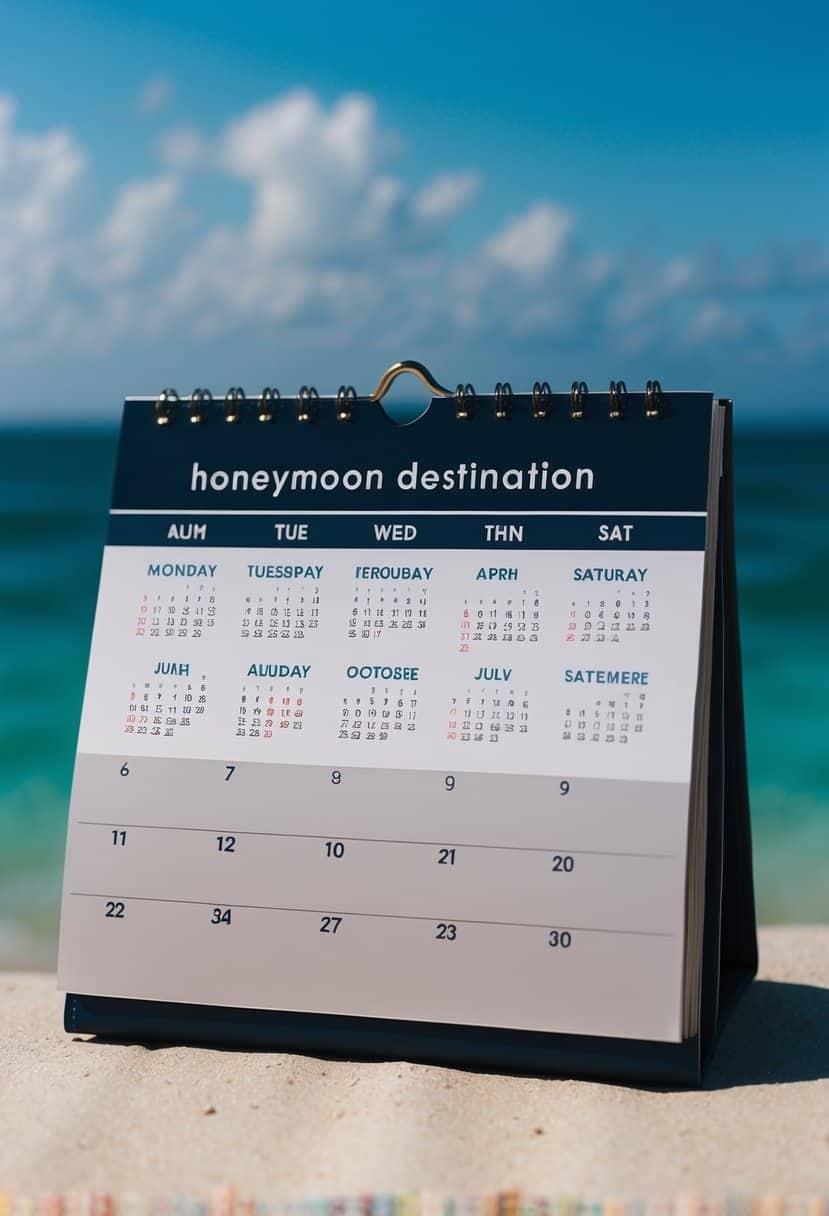How Long is the Honeymoon Phase? Understanding Relationship Dynamics
You’re in that magical stage of your relationship where everything feels perfect and exciting. This is often called the honeymoon phase. In this phase, you and your partner can’t get enough of each other, and life seems like a dream. The honeymoon phase typically lasts from six months to two years, according to Brides.

As time goes on, you may begin to notice subtle shifts in your bond. Things that once seemed charming might start to feel routine. This change is natural and happens to almost every couple, as noted by wikiHow. It’s during this transition that the strong foundation of your relationship truly begins to form.
Understanding the nuances of this phase can be both comforting and empowering. By learning about what to expect, you can better embrace the journey and strengthen the love that you and your partner share.
So, what are the signs that this exciting stage is fading? Keep reading to find out.
Defining the Honeymoon Phase

The honeymoon phase is an exciting period when you’re deeply infatuated with your new partner. This stage is marked by intense romantic love and a burst of energy, bringing unique feelings and emotional highs.
Characteristics of the Honeymoon Phase
During the honeymoon phase, everything seems perfect and exciting. You feel a strong attraction to your partner and want to spend all your time with them. You might find yourselves laughing a lot and sharing new experiences. The world feels brighter, and common activities become more enjoyable when done together.
It’s usual to focus on your partner’s positive traits, often overlooking flaws. This is a time full of optimism and a sense of newness. Physical affection and closeness often increase as you explore intimacy. While this period is amazing, it’s important to remember that it may not last forever. Researchers suggest this phase might last anywhere from six months to two years.
Chemical Reactions in Love
When you’re in this phase, your brain produces hormones that heighten feelings of love and happiness. Dopamine plays a significant role, giving you feelings of pleasure and reward. This chemical makes each interaction with your partner feel more exciting.
Oxytocin is another hormone linked with bonding, often called the “love hormone.” It enhances your feelings of connection and closeness. Meanwhile, cortisol, the stress hormone, might spike too, due to excitement and nervousness. These chemical reactions combine to create the thrill and euphoria you feel during this time. Understanding these processes can help you appreciate what’s happening in your brain when you’re caught up in love.
Duration and Transition

In a relationship, the honeymoon phase marks the initial period filled with excitement and discovery. Understanding its duration and transition to a deeper connection can help strengthen your bond.
How Long It Lasts
The honeymoon phase is when everything seems wonderful and perfect. According to relationship experts, it typically lasts from six months to two years. During this time, you might feel a surge of happiness and attraction. Factors like individual personalities and life circumstances can affect how long this phase lasts.
A study conducted by New York University found that the duration of this phase varies widely. It’s commonly filled with laughter and love. But, as you start noticing more aspects of each other, the euphoric feelings can start to change.
From Early Love to Lasting Bonds
Transitioning from the honeymoon phase to a long-term relationship involves growth. As differences start to surface, you may need to adjust your expectations. Moving past the initial phase doesn’t mean losing affection. Instead, it’s about forming a deeper connection based on mutual respect and understanding.
Hard conversations might arise, but they pave the way for a more stable bond. It’s important to embrace these changes for the health of your relationship.
Maintaining Connection Beyond the Honeymoon

Staying connected after the honeymoon phase takes effort, especially when daily life becomes routine. Your relationship can stay strong by focusing on communication, emotional intimacy, and keeping the passion alive.
Communication and Emotional Intimacy
Communication is key to building a lasting relationship. Discuss your feelings, dreams, and even fears with your partner. This openness fosters emotional intimacy, helping you both feel understood and valued.
Regular check-ins can help, where you both share what’s on your mind without judgment.
Creating small routines, like morning coffee chats or evening walks, strengthens your connection. These moments become special when you truly listen and engage with each other. Emotional intimacy doesn’t just happen; it grows over time as you build trust.
Keeping the Passion Alive
To keep the spark alive, it’s important to continue dating each other. Plan fun date nights, whether it’s trying a new restaurant or cooking together at home. The goal is to enjoy each other’s company and have a good time.
Think about activities that you both love and make time for them regularly. Maybe it’s dancing, hiking, or watching your favorite movies. These shared activities remind you both of why you fell in love.
Keeping the passion alive also means keeping things fresh, exciting, and sometimes surprising your partner with little acts of affection.
Navigating Challenges

Facing challenges in a relationship involves being aware of potential issues and building strong trust and commitment. By focusing on these aspects, you can foster a healthier and more satisfying partnership.
Recognizing Red Flags
Being alert to red flags is crucial in maintaining a healthy relationship. If you notice patterns of dishonesty, unexplained absences, or a lack of communication, it’s important to address them. These warning signs can indicate underlying problems that may need attention.
Discussing concerns with your partner openly fosters understanding. A supportive environment can help you both work through issues together. If unresolved, these red flags may lead to bigger challenges down the road, so it’s best to tackle them early.
Building Trust and Commitment
Trust is the foundation of any strong relationship. It’s built through consistent communication and shared experiences.
When you and your partner are open with each other, it strengthens the bond of trust.
Commitment involves being there for each other through ups and downs. Making time for one another and showing appreciation are simple but effective ways to nurture this commitment.
Seeing your relationship as a partnership means working towards common goals and respecting each other’s needs and boundaries. This creates a strong, united front in facing challenges together.
Expert Advice for Sustained Affection

Keeping affection strong in a romantic relationship involves understanding key aspects like communication and intimacy. Experts share insights on maintaining the initial spark and fostering a healthy bond with your partner.
Insights from Relationship Experts and Life Coaches
Relationship experts often highlight the importance of open communication with your new partner. You should talk about your feelings, needs, and desires to build trust and understanding. It’s not just about talking; you should also listen attentively. Listening helps you learn more about each other, making the bond stronger.
Life coaches suggest regular small gestures of affection. These can be compliments, hugs, or even a simple “I love you” spoken daily to keep the love alive. Physical intimacy is another important aspect. It’s not just about romance, but it also includes holding hands or a gentle touch to show you care. Prioritize spending quality time together. This could be anything from cooking a meal together to taking a walk in the park. These shared moments create memories and reinforce your connection.



